VfL Wolfsburg
VfL Wolfsburg is a German professional football club based in Wolfsburg, Lower Saxony. They have won the Bundesliga once in their history, in the 2008–09 season, and were DFB-Pokal runners-up in 1995. The club grew out of a multi-sports club for Volkswagen workers in the city of Wolfsburg and is a wholly owned subsidiary of Volkswagen Group.[1][2]
History
A new team in a new city
The city of Wolfsburg was founded in 1938 as Stadt des KdF-Wagen to house autoworkers building the car which would later become famous as the Volkswagen Beetle. The first football club affiliated with the autoworks was known as BSG Volkswagenwerk Stadt des KdF-Wagen. This team played in the first division Gauliga Osthannover in the 1943–44 and 1944–45 seasons.
On 12 September 1945, in the aftermath of World War II, a new club was formed and was known briefly as VSK Wolfsburg. This side began play in the green and white still worn by VfL today: local youth trainer Bernd Elberskirch had ten green jerseys at his disposal and white bed sheets donated by the public were sewn together by local women to make shorts.
On 15 December 1945, the club went through a crisis that almost ended its existence when all but one of its players left to join 1. FC Wolfsburg. The only player remaining, Josef Meyer, worked with Willi Hilbert to rebuild the side by signing new players. The new group adopted the moniker VfL Wolfsburg, VfL standing for Verein für Leibesübungen. This can be translated as "club for gymnastics" or "club for exercises." Within a year they captured the local Gifhorn title. In late November 1946, the club played a friendly against longtime Gelsenkirchen powerhouse Schalke 04 at the stadium owned by Volkswagen, emerging as the successor to BSG as the company sponsored side.
Postwar play
The club made slow but steady progress in the following seasons. They captured a number of amateur level championships, but were unable to advance out of the promotion playoffs until finally breaking through to the top tier Oberliga Nord in 1954 with a 2–1 victory over Heider SV. However, Wolfsburg struggled in the top flight, narrowly missing relegation each season until finally being sent down in 1959. When Germany's first professional football league – the Bundesliga – was formed in 1963, VfL was playing in the Regionalliga Nord (II) having just moved up from the Verbandesliga Niedersachsen (III).
Second division and advance to the Bundesliga

Historical logo of VfL Wolfsburg in use until 2002.
Wolfsburg remained a second division fixture over the next dozen years with their best performance being a second place finish in 1970. That finish earned the club entry to the promotion round playoffs for the Bundesliga where they performed poorly and were unable to advance. From the mid-70's through to the early 90's Die Wölfe played as a third division side in the Amateur Oberliga Nord. Consecutive first place finishes in 1991 and 1992, followed by success in the promotion playoffs saw the club advance to the 2. Bundesliga for the 1992–93 season.
VfL continued to enjoy some success through the 90's. The team advanced to the final of the German Cup in 1995 where they were beaten 0–3 by Borussia Mönchengladbach, but then went on to the top flight on the strength of a second place league finish in 1997.
Early predictions were that the club would immediately be sent back down, but instead, the Wolves developed into a mid-table Bundesliga side. In the 1998–99 season, Wolfsburg under Wolfgang Wolf, was holding the fifth place in the 33rd fixture, and they had hopes to reach the 4th place, and the UEFA Champions League participation. Losing 6-1 away to Duisburg in the final fixture, the Wolves finished in the 6th place with 55 points, and qualified to the UEFA Cup. They qualified for the Intertoto Cup in 2000, 2001, 2003, 2004 and 2005, enjoying their best run in 2003 by reaching the final where they lost to Italian side AC Perugia. This was followed by a couple of seasons of little success for the club when only narrowly avoiding relegation with two 15th place finishes in the 2005–06 and 2006–07 season.
2008–present
For the 2007–08 season the club hired former Bayern Munich manager Felix Magath, with whom they managed to finish an astonishing 5th place at the end of the season, the highest finish for the club at the time. This also enabled the Wolves to qualify for the UEFA Cup, for only the second time in their history.
In the 2008–09 season, under Magath, Wolfsburg claimed their biggest success by winning their first Bundesliga title after defeating Werder Bremen 5–1 on 23 May 2009. During this campaign, Wolfsburg equaled the longest winning streak in one Bundesliga season with 10 successive victories after the winter break. They also became the only team in the Bundesliga to have had two strikers to score more than 20 goals each in one season with Brazilian Grafite and Bosnian Edin Džeko achieving this feat in their title-winning season, scoring 28 and 26 respectively. As a result of their title win, Wolfsburg qualified for the UEFA Champions League for the first time in their history.
In the 2009–10 season, Wolfsburg dismissed their newly-appointed trainer Armin Veh after the winter break due to lack of success, with the club sitting tenth in the league. In the Champions League they came third in their group, behind Manchester United and CSKA Moscow losing the chance for a place in the competition's successive round. As a result, the qualified for the Round of 32 phase of the UEFA Europa League. They reached to defeat Spanish side Villareal 6–3 on aggregate, and Russian champions Rubin Kazan 3–2. In the quarter finals they were, however, beaten 3–1 by eventual finalists Fulham.
On the 11 May 2010, the permanent head coach's position was filled by former Middlesbrough, England and Twente manager Steve McClaren. After having guided Twente to their first ever Dutch title he was rewarded by becoming the first ever English coach to be given the chance to manage a Bundesliga side.
Honours
Senior
- German Amateur Football Championship:
- Amateuroberliga Niedersachsen-Ost (II):
- Winners (3): 1952, 1954, 1963
- Oberliga Nord (III):
- Winners (2): 1991, 1992
- Runners-up (3): 1976, 1978, 1988
Youth
- German Under 19 championship
- Under 19 Bundesliga North/Northeast
- Under 17 Bundesliga North/Northeast
Stadium
Wolfsburg play at the Volkswagen Arena, which seats a total capacity of 30,122 spectators.
Players
First team squad
As of 13 August 2010.[3]
Note: Flags indicate national team as has been defined under FIFA eligibility rules. Players may hold more than one non-FIFA nationality.
| No. |
|
Position |
Player |
| 1 |
 |
GK |
Diego Benaglio |
| 3 |
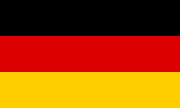 |
DF |
Arne Friedrich |
| 4 |
 |
DF |
Marcel Schäfer |
| 7 |
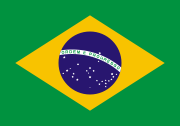 |
MF |
Josué |
| 8 |
 |
MF |
Thomas Kahlenberg |
| 9 |
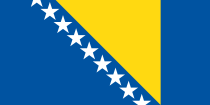 |
FW |
Edin Džeko  |
| 11 |
 |
MF |
Cícero (on loan from Tombense) |
| 12 |
 |
GK |
André Lenz |
| 13 |
 |
MF |
Makoto Hasebe |
| 14 |
 |
MF |
Tolga Cigerci |
| 15 |
 |
MF |
Karim Ziani |
| 16 |
 |
DF |
Fabian Johnson |
| 17 |
 |
DF |
Alexander Madlung |
| 18 |
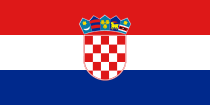 |
FW |
Mario Mandžukić |
| 19 |
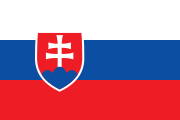 |
DF |
Peter Pekarík |
| 20 |
 |
DF |
Sascha Riether |
|
|
| No. |
|
Position |
Player |
| 21 |
 |
FW |
Nassim Ben Khalifa |
| 22 |
 |
MF |
Kevin Wolze |
| 23 |
 |
FW |
Grafite |
| 24 |
 |
MF |
Ashkan Dejagah |
| 28 |
 |
MF |
Diego |
| 31 |
 |
FW |
Caiuby |
| 32 |
 |
MF |
Sebastian Schindzielorz |
| 34 |
 |
DF |
Simon Kjær |
| 35 |
 |
GK |
Marwin Hitz |
| 37 |
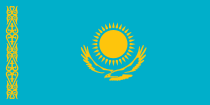 |
DF |
Sergei Karimov |
| 38 |
 |
MF |
Philipp Kreuels |
| 39 |
 |
DF |
Michael Schulze |
| 40 |
 |
FW |
Sebastian Polter |
| 42 |
 |
MF |
Julian Klamt |
| 43 |
 |
DF |
Andrea Barzagli |
| — |
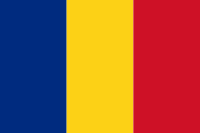 |
MF |
Vlad Munteanu |
|
For recent transfers, see List of German football transfers summer 2010 and List of German football transfers winter 2009-10.
Coaching staff
| Position |
Name |
| Head coach |
 Steve McClaren Steve McClaren |
| Assistant coach |
 Pierre Littbarski Pierre Littbarski |
| Assistant coach |
 Achim Sarstedt Achim Sarstedt |
| Goalkeeping coach |
 Andreas Hilfiker Andreas Hilfiker |
| Fitness coach |
 Wolfhard Savoy Wolfhard Savoy |
| Fitness coach |
 Alessandro Schoenmaker Alessandro Schoenmaker |
VfL Wolfsburg II squad
As of 2 August 2009 (2009 -08-02)[update]
Manager: Alexander Strehmel
Note: Flags indicate national team as has been defined under FIFA eligibility rules. Players may hold more than one non-FIFA nationality.
| No. |
|
Position |
Player |
| 1 |
 |
GK |
Jonas Deumeland |
| 2 |
 |
DF |
Michael Schulze |
| 3 |
 |
DF |
Sergei Karimov |
| 4 |
 |
DF |
Julian Klamt |
| 5 |
 |
DF |
Daniel Reiche |
| 6 |
 |
DF |
Dennis Riemer |
| 8 |
 |
MF |
Sefa Yilmaz |
| 9 |
 |
FW |
Mike Könnecke |
| 11 |
 |
FW |
Loïc Lumbilla Kandja |
| 12 |
 |
FW |
Sebastian Polter |
| 13 |
 |
FW |
Fabian Klos |
|
|
| No. |
|
Position |
Player |
| 14 |
 |
MF |
Sergej Evljuskin |
| 15 |
 |
DF |
Rico Schlimpert |
| 17 |
 |
MF |
Marcel Weiß |
| 18 |
 |
MF |
Burak Altiparmak |
| 19 |
 |
MF |
Maximilian Ahlschwede |
| 20 |
 |
FW |
Michael Lumpe |
| 21 |
 |
DF |
André Fomitschow |
| 23 |
 |
FW |
Christoph Beismann |
| 24 |
 |
GK |
Rene Melzer |
| 26 |
 |
GK |
Max Leiding |
|
Women's section
Notable former players
 Willi Giesemann Willi Giesemann Thomas Brdaric Thomas Brdaric Martin Wagner Martin Wagner Zoltán Sebescen Zoltán Sebescen Stefan Effenberg Stefan Effenberg Mike Hanke Mike Hanke Roy Präger Roy Präger Tobias Rau Tobias Rau Albert Streit Albert Streit Stefan Schnoor Stefan Schnoor  Hans Sarpei Hans Sarpei  Pablo Thiam Pablo Thiam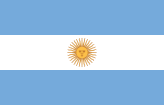 Diego Klimowicz Diego Klimowicz Andres D'Alessandro Andres D'Alessandro Facundo Hernán Quiroga Facundo Hernán Quiroga
|
 Dietmar Kühbauer Dietmar Kühbauer.svg.png) Peter Van Der Heyden Peter Van Der Heyden Marcelinho Marcelinho Robson Ponte Robson Ponte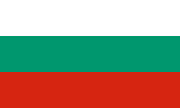 Marian Hristov Marian Hristov Petar Mihtarski Petar Mihtarski Martin Petrov Martin Petrov Waldo Ponce Waldo Ponce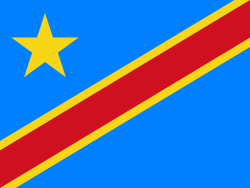 Jean-Kasongo Banza Jean-Kasongo Banza Tomislav Marić Tomislav Marić Jesper Christiansen Jesper Christiansen Peter Madsen Peter Madsen Thomas Rytter Thomas Rytter Claus Thomsen Claus Thomsen
|
 Steve Marlet Steve Marlet Charles Akonnor Charles Akonnor Isaac Boakye Isaac Boakye Yoshito Okubo Yoshito Okubo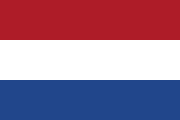 Kevin Hofland Kevin Hofland Jonathan Akpoborie Jonathan Akpoborie Krzysztof Nowak Krzysztof Nowak Waldemar Kryger Waldemar Kryger Andrzej Juskowiak Andrzej Juskowiak Dorinel Munteanu Dorinel Munteanu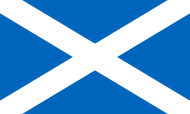 Brian O'Neil Brian O'Neil Miroslav Karhan Miroslav Karhan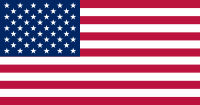 Claudio Reyna Claudio Reyna
|
|
References
External links
|
VfL Wolfsburg |
|
| Information |
Club · Players · Managers · Ladies
|
|
| Stadia |
Volkswagen Arena · VfL-Stadium
|
|
|
Regionalliga Nord (IV) 2010–11 clubs |
|
Eintracht Braunschweig II · Chemnitzer FC · Energie Cottbus II · Hallescher FC · Hamburger SV II · Hannover 96 II · TSV Havelse · Hertha BSC II · Holstein Kiel · RB Leipzig · VfB Lübeck · 1. FC Magdeburg · ZFC Meuselwitz · FC Oberneuland · VFC Plauen · Türkiyemspor Berlin · SV Wilhelmshaven · VfL Wolfsburg II
|
|
|
Fußball-Bundesliga (women) |
|
| 2010–11 teams |
1. FFC Frankfurt · Bad Neuenahr · Bayer Leverkusen · Bayern Munich · Essen-Schönebeck · FCR Duisburg · Hamburg · Herford · Jena · Saarbrücken · Turbine Potsdam · Wolfsburg
|
|
| Former teams |
Ahrbach · Battenberg · Bergisch Gladbach · Binzen · Brauweiler Pulheim · Crailsheim · Flaesheim-Hillen · Fortuna Sachsenross · Freiburg · FSV Frankfurt · Jahn Delmenhorst · KBC Duisburg · Klinge Seckach · Ludwigsburg · Niederkirchen · Heike Rheine · Lövenich · Neukölln · Nuremberg · Poppenbüttel · Rostock · Rot-Weiß Hillen · Sand · Schmalfeld · Schwarzbach · Sportfreunde Siegen · Sindelfingen · Tennis Borussia Berlin · Ulm · Wacker Munich · Wattenscheid · Wildeshausen · Wilhelmshaven · Wismut Aue · Wörrstadt |
|
|
U19 Bundesliga North/Northeast 2010–11 clubs |
|
|
|
|
|
U17 Bundesliga North/Northeast 2008–09 clubs |
|
|
|
|
|
2010–11 UEFA Champions League |
|
| Still in the competition |
|
|
| Eliminated in the group stage |
|
|
Eliminated in the
play-off round |
|
|
Eliminated in the
third qualifying round |
|
|
Eliminated in the
second qualifying round |
Birkirkara · Bohemians · Dinamo Tirana · Ekranas · FH · HB Tórshavn · Inter Baku · Jeunesse Esch · Koper · Levadia · Liepājas Metalurgs · Linfield · Olimpi Rustavi · Pyunik · Renova · Rudar Pljevlja · Željezničar |
|
Eliminated in the
first qualifying round |
FC Santa Coloma · Tre Fiori
|
|
| Round and draw dates · Qualifying phase and play-off round · Group stage · Knockout phase · Final |
|
|
2010–11 UEFA Europa League |
|
| Currently playing in the group stage |
|
|
| Eliminated in the play-off round |
|
|
| Eliminated in the third qualifying round |
|
|
| Eliminated in the second qualifying round |
Atyrau · Baku · Besa Kavajë · Bnei Yehuda · Borac Banja Luka · Breiðablik · Cibalia · Dacia Chişinău · Differdange · Dukla Banská Bystrica · Dundalk · Gefle · Gorica · Honka · Iskra-Stal · Jelgava · KF Tirana · KR Reykjavík · Mika · Mogren · Olimpia · Portadown · Šiauliai · Šibenik · Sillamäe Kalev · Široki Brijeg · Sporting Fingal · Stabæk · Sūduva Marijampolė · Tauras Tauragė · Tarpeda Zhodzina · Tre Penne · TPS · UE Sant Julià · Vaduz · Valletta · Ventspils · Videoton · Víkingur · WIT Georgia |
|
| Eliminated in the first qualifying round |
Banants · EB/Streymur · F91 Dudelange · Faetano · Flora · Fylkir · Glentoran · Grevenmacher · Khazar · Laçi · Llanelli · Lusitanos · Metalurg Skopje · Narva Trans · Nitra · NSÍ Runavík · Olimpija · Port Talbot Town · Shakhter Karaganda · Skonto · Sliema Wanderers · Tobol · UE Santa Coloma · Ulisses · Zalaegerszeg · Zeta |
|
| Round and draw dates · Qualifying phase and play-off round · Group stage · Knockout stage · Final |
|

